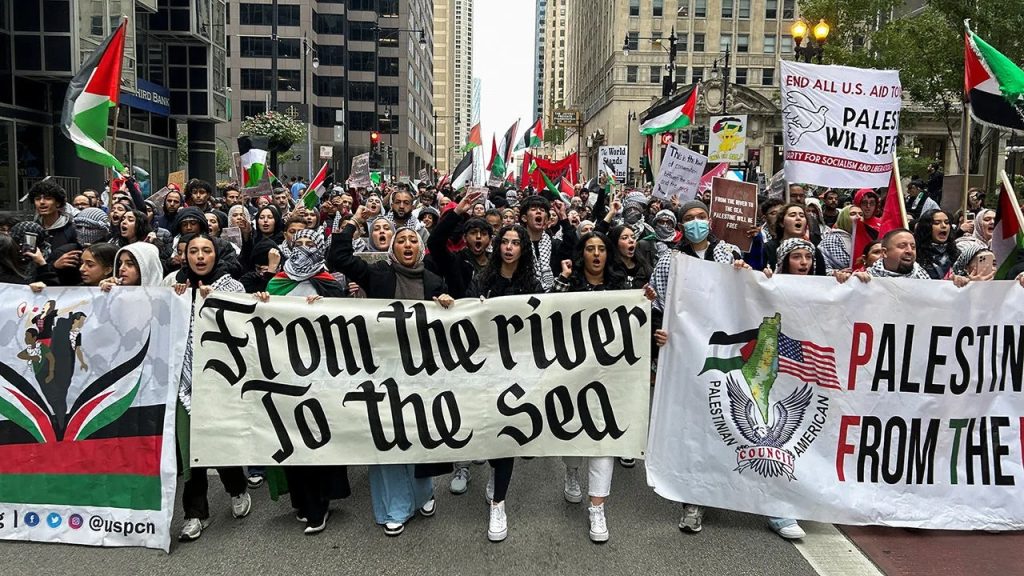The war in Gaza has deeply shaken not only those in the Middle East but also the Palestinian diaspora across the globe — particularly in the United States. For Palestinian Americans, the aftermath of the Gaza war has brought a complex and often painful mix of political scrutiny, increased activism, and intensified social and psychological pressures.
While the U.S. has historically been home to a small but vibrant Palestinian community, recent developments have significantly altered their lived experience, public image, and sense of security.
Rise in Islamophobia and Anti-Palestinian Sentiment
Since the beginning of the war in Gaza, numerous Palestinian Americans — along with broader Arab and Muslim communities — have reported:
-
Harassment and threats, both online and in public
-
Workplace discrimination and academic censorship
-
Increased hate crimes, as tracked by organizations like CAIR (Council on American-Islamic Relations)
Many Palestinian students and professionals say they are being targeted for their political views, especially those who speak out in support of Gaza or criticize Israeli policies.
At universities, there has been a wave of suspensions, police crackdowns, and doxxing campaigns against pro-Palestinian voices. These patterns echo a longer history of surveillance and suppression that dates back to post-9/11 policies but have intensified with the emotional and political weight of the war.
Fear of Surveillance and Immigration Concerns
Following the war, civil rights advocates warn of heightened government monitoring of Palestinian and Arab Americans. Activists have pointed to:
-
Increased scrutiny on student visas and green card applicants from Palestine or other Arab countries
-
Fear among immigrants that participation in protests or public speech could negatively affect their immigration status or asylum claims
-
A chilling effect on freedom of expression, especially for undocumented or newly arrived Palestinians
Many Palestinians in the U.S., particularly those on temporary visas or with pending asylum cases, now live under an intensified climate of fear, unsure whether their advocacy or social media activity could be used against them.
Emotional Toll and Mental Health Struggles
For families with relatives in Gaza, the psychological burden has been immense. Watching the war unfold from a distance, with limited communication or ability to help, has led to:
-
Anxiety and depression
-
Survivor’s guilt
-
Feelings of helplessness and anger toward both Israeli aggression and U.S. foreign policy
Community organizations and therapists have reported a surge in Palestinians and Muslims seeking mental health support — often for the first time.
Community Mobilization and Political Advocacy
Despite the challenges, many Palestinian Americans have responded with increased civic engagement. Across cities like Chicago, Detroit, San Francisco, and New York, Palestinians have organized:
-
Mass protests and vigils
-
Political lobbying for ceasefire resolutions and humanitarian aid
-
Legal and civil rights campaigns to defend students and workers from retaliation
The war has galvanized a new generation of activists, artists, and professionals committed to telling the Palestinian story — both as a response to suffering and a demand for visibility.
Shifts in Public Opinion and Media Representation
For decades, mainstream U.S. discourse marginalized Palestinian perspectives. However, the war has triggered a notable shift:
-
A growing number of young Americans, progressives, and faith-based groups now openly criticize Israeli military actions
-
Social media has allowed Palestinian narratives to bypass traditional media filters
-
Despite backlash, Palestinian Americans have gained increased visibility in political and journalistic spaces
Still, this visibility comes with risks, as vocal Palestinians are often targeted, silenced, or labeled anti-Semitic — even when advocating for peace and human rights.
The Gaza war has profoundly altered the landscape for Palestinians in the United States — emotionally, socially, and politically. While many face increased hostility, surveillance, and fear, they have also responded with unity, resilience, and a renewed push for justice.
As American public opinion gradually shifts, Palestinian Americans remain at the forefront of a crucial conversation about war, occupation, identity, and human dignity.

